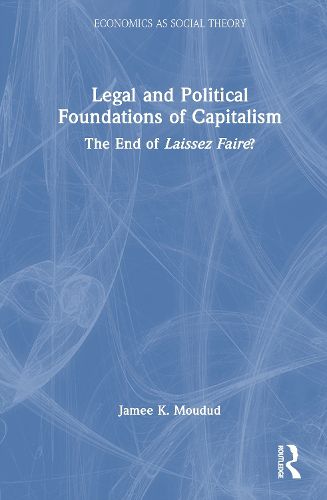Readings Newsletter
Become a Readings Member to make your shopping experience even easier.
Sign in or sign up for free!
You’re not far away from qualifying for FREE standard shipping within Australia
You’ve qualified for FREE standard shipping within Australia
The cart is loading…






"Institutions matter" is a common refrain among all economists-including many who have proposed progressive alternatives to free market fundamentalism. However, this sentiment does not go far enough.
This book draws principally on the Original Institutional Economics and American Legal Realist traditions to propose a theory of legal institutionalism or institutional political economy. By arguing that society is a political community it challenges the private law versus public law or state versus markets distinction. Focusing on property, money and credit, constitutional law, and corporations this book argues that laissez-faire has never existed and that "state intervention versus de-regulation" and "market failures versus free markets" are false dichotomies. This book proposes the need to engage with legal-economic theory and history to understand what institutions are, what economic regulation means, law's intrinsic connection to the economy, and the distribution of power relations within capitalism.
This book will be of interest to readers of economics, law, public policy, international and development studies, and all those seeking to explore progressive alternatives in this period of multiple crises.
$9.00 standard shipping within Australia
FREE standard shipping within Australia for orders over $100.00
Express & International shipping calculated at checkout
"Institutions matter" is a common refrain among all economists-including many who have proposed progressive alternatives to free market fundamentalism. However, this sentiment does not go far enough.
This book draws principally on the Original Institutional Economics and American Legal Realist traditions to propose a theory of legal institutionalism or institutional political economy. By arguing that society is a political community it challenges the private law versus public law or state versus markets distinction. Focusing on property, money and credit, constitutional law, and corporations this book argues that laissez-faire has never existed and that "state intervention versus de-regulation" and "market failures versus free markets" are false dichotomies. This book proposes the need to engage with legal-economic theory and history to understand what institutions are, what economic regulation means, law's intrinsic connection to the economy, and the distribution of power relations within capitalism.
This book will be of interest to readers of economics, law, public policy, international and development studies, and all those seeking to explore progressive alternatives in this period of multiple crises.